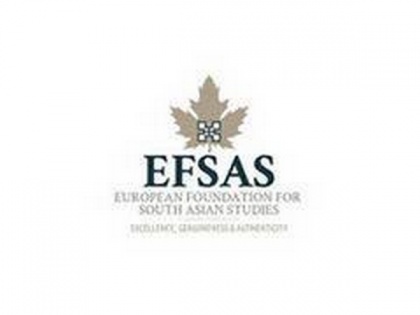By rejecting European Parliament resolution, Pak proves its relations with TLP is 'weightier' than EU: Think Tank
By ANI | Published: May 7, 2021 08:26 PM2021-05-07T20:26:24+5:302021-05-07T20:35:02+5:30
By rejecting the European Parliament resolution on rising cases of blashempy law abuse in Pakistan, the Imran Khan government has conveyed that its relations with terror outfit Tehrik-i-Labaik Pakistan (TLP) is "weightier and more invaluable" than that with the 27 democratic countries, said a European think tank.

By rejecting European Parliament resolution, Pak proves its relations with TLP is 'weightier' than EU: Think Tank
By rejecting the European Parliament resolution on rising cases of blashempy law abuse in Pakistan, the Imran Khan government has conveyed that its relations with terror outfit Tehrik-i-Labaik Pakistan (TLP) is "weightier and more invaluable" than that with the 27 democratic countries, said a European think tank.
The European Parliament, in its latest session, has adopted a resolution demanding Pakistan to allow space for religious freedom and urged the EU authorities to review the General Scheme of Preferences Plus (GSP+) status for Pakistan amid the increasing number of blasphemy cases.
Prime Minister Imran Khan Cabinet held a meeting on May 3 on EU resolution and decided that there would be no compromise on the country's controversial blasphemy law.
In January 2014, the EU granted Pakistan status under its flagship trading scheme, the GSP+.
The GSP+ provides enhanced and preferential free trade between the EU and a small list of countries that are meant to be among those developing countries with the best human rights records.
"The Pakistani government in choosing to reject the European Parliament resolution has conveyed quite clearly, however, that its relationship with the TLP, an outfit that it itself has termed 'terrorist', is weightier and more invaluable than that with the 27 democratic countries that constitute the EU," European Foundation For South Asian Studies (EFSAS), said in a commentary.
The EFSAS said that the "devil-may-care attitude" to the resolution that was taken by the Pakistani government was "inconsonant with the views of a sizeable number of Pakistanis".
The think tank highlighted that the Pakistani newspaper Dawn in an editorial on 2 May described the European resolution as "deeply unsettling".
The EU resolution, which was passed last month, calls on the Pakistan government to "unequivocally condemn" incitement to violence and discrimination against religious minorities in the country.
It also expresses "deep concern" at the prevailing anti-French sentiment in Pakistan, Dawn reported.
The resolution has come days after members of now-outlawed Tehreek-e-Labiak Pakistan (TLP) held violent protests after the group's leader was arrested for demanding the expulsion of the French ambassador.
Member of European Parliament (MEP) Charlie Weimers of Sweden, who co-authored the resolution, in his speech during the parliament's latest session cited various incidents of members of religious minorities killed or imprisoned in Pakistan over accusations of blasphemy.
The EFSAS said that the resolution was scathing in its criticism.
"It (resolution) pointed out that the highest number of accusations of blasphemy in Pakistan since 1987 took place in 2020. It urged the Government of Pakistan to 'unequivocally condemn incitement to violence and discrimination against religious minorities in the country' and put in place 'effective, procedural and institutional safeguards' to prevent the abuse of the blasphemy laws," EFSAS said.
( With inputs from ANI )
Disclaimer: This post has been auto-published from an agency feed without any modifications to the text and has not been reviewed by an editor
Open in app